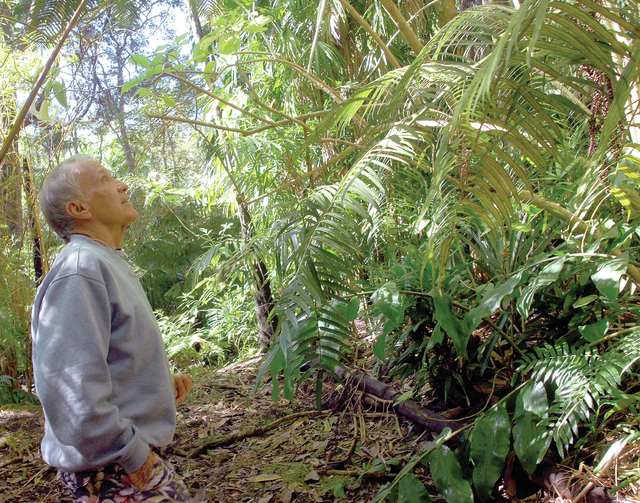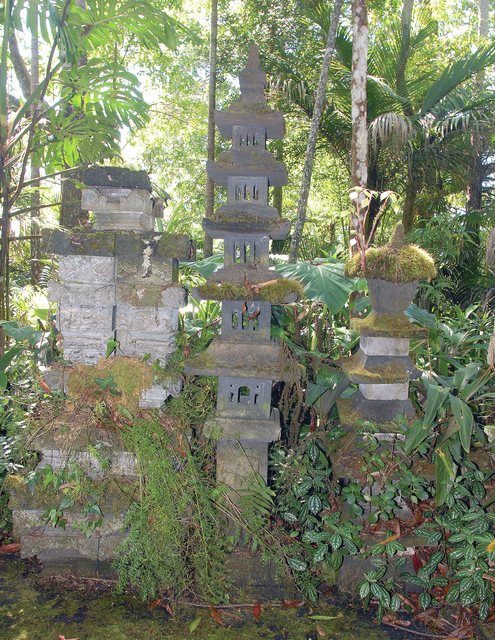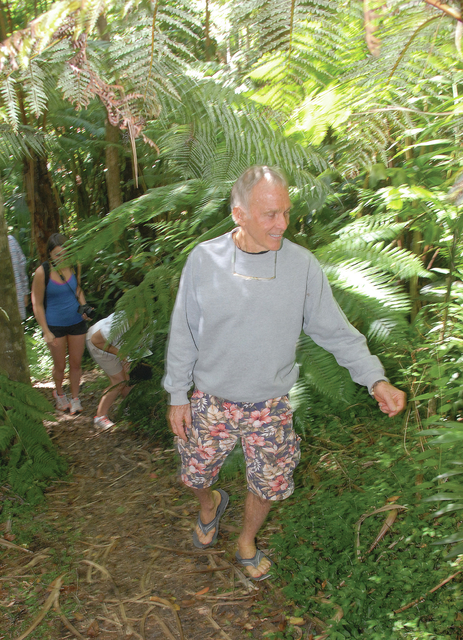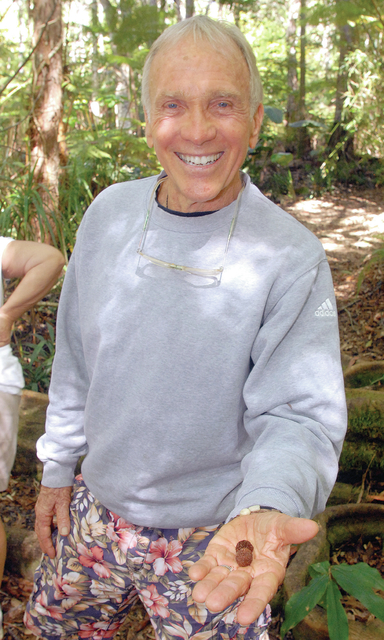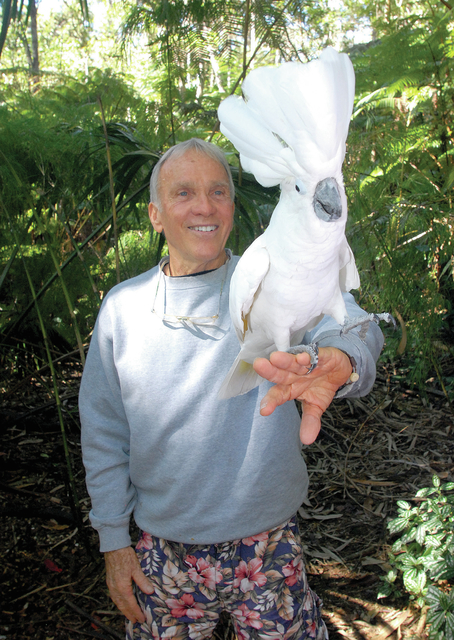KALAOA — Perched a little more than a half mile above the jagged desert of lava rock lining the Kona coast sits a lush 75-acre parcel of pristine mountain land known as the Kona Cloud Forest Sanctuary, a portion of which will soon be preserved in perpetuity.
Norman Bezona, a retired professor emeritus from the University of Hawaii College of Tropical Agriculture and the steward of the sanctuary, has entered into a conservation agreement with Hawaiian Islands Land Trust (HILT), the only statewide conservation organization in Hawaii.
The agreement, technically described in legal terms as a conservation easement, guarantees a 10-acre section of the cloud forest sanctuary Bezona manages by barring deforestation for any purpose. It ensures the land will remain essentially as it is forever, or at least until Mother Nature decides to gradually alter it to her own specifications.
“Our mission is to protect the lands that current and future generations depend on,” said Janet Britt, acquisitions specialist and Hawaii Island director at HILT. “We work with private land owners, usually, to protect their lands. We have priority areas, and the rainforest and cloud forest are definitely priorities for us because they’re under protected.”
HILT currently has 12 conservation easements across the Big Island, ranging in size and location from a quarter acre in Volcano to 970 acres in Ka’u. Hilt’s largest easement in the state is on a ranch in Maui and comprised of 11,000 acres.
Bezona willingly agreed to stipulations of the conservation agreement that allow him to build one small structure on the 10-acre plot, post signs, use the area as an educational retreat and treat it with certain types of chemicals.
Aside from that, HILT will determine much of how the plot will be managed and what goings on will be permitted there. The organization will conduct a yearly inspection to make sure the terms of the contract aren’t breached.
But the agreement doesn’t afford HILT complete autonomy as to the land usage, particularly in the area of public access, and so the easement also sets up certain provisions for the future.
“Norm’s been wonderful about allowing the public to come on the property, but we’re not sure what’s going to happen forever. Maybe, someday, there will be an owner who says, ‘No, this is my land,’” Britt said. “To ensure we’ll be able to come out here, we put in a provision that HILT can come out four times per year to bring the public, forever. That will ensure public access.”
Bezona has conducted educational seminars about forest-friendly living and horticulture at the sanctuary for years, and it was during a joint talk story on the sanctuary land that he and Britt began discussing an easement on the property.
The goal is to protect the natural habitat for flora and fauna like the ohia tree, which is still mostly healthy in the area, and the birds and insects who make their homes in the cloud forest.
The sanctuary and the roughly 2,000 acres of cloud forest surrounding it also protect the aquifer by greatly aiding the amount of rainfall in an otherwise parched section of the state.
A unique feature of cloud forests like the one in Kona is when the spring equinox occurs radiation from the sun heats the land and forces the air to rise, Bezona said. The process draws in wet air from the coast, which clouds up and creates rain once it hits the forest.
Bezona added research has shown removal of the cloud forest would immediately deprive the region of 40 percent of its annual rainfall.
While Bezona and his family can only do so much themselves, the 79-year-old master horticulturist said his hopes and vision for the entirety of Kona’s cloud forest is far grander.
“I want to see this whole 2,000 acres and Palani Ranch and Kealakekua Ranch — I want to see this whole strip of land protected because it really protects lower areas,” Bezona said. “The county can change its mind at any time, but now with the state and federal government involved, (the protections) have to stay enforced in perpetuity.”
Bezona is not giving the land away, but is forfeiting a sizable chunk of equity in the name of conservation. He said the average 10-acre parcel in the area is appraised about about $350,000.
The precise value of the plot of sanctuary he’s donating has yet to be established, Britt said, but described the amount of HILT’s purchase a “bargain price.”
Both Bezona and Britt agreed the cost to HILT would settle in the range of roughly 5 percent of the property’s value. Bezona’s explanation as to his generosity was quite simple.
“It’s God’s property,” he said. “We just pay the taxes and the mortgage.”







